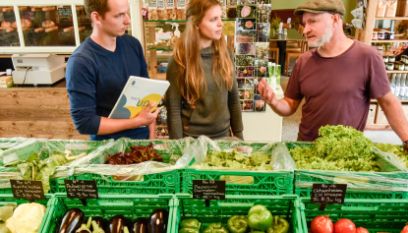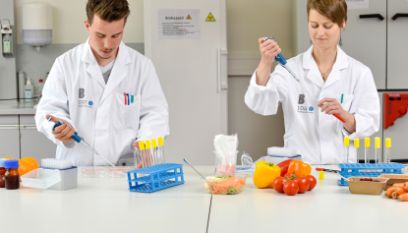Areas covered by the programme
The interdisciplinary master's programme in Circular Innovation and Sustainability combines business skills with a technical and ecological understanding of production cycles and the sustainable use of our natural resources.
What you will gain from this degree programme
Take responsibility today for the changes of tomorrow and play an active role in shaping the future. BFH’s first interdisciplinary master’s programme (business, life sciences and technology) provides a uniquely broad insight into the fields of circular economy and sustainable development. On this programme, you will gain an in-depth understanding of biological and technical cycles and come to know the potential they offer for developing sustainable product and process innovations. You will also acquire the skills to rethink conventional business models and make them circular.
Core features of your programme
Interdisciplinarity
The master’s is underpinned by an interdisciplinary foundation programme, equipping you with broad knowledge from research and practice about circular economy, resource efficiency and sustainable development. You will gain insight into the fundamental principles of a sustainable transformation in sectors ranging from food to energy management. Both the modules and the teaching staff on the programme are put together to be interdisciplinary.
Specialisation
After the foundation programme, focused specialisation is possible. Thanks to a generous range of focus modules, you can pursue your personal interests in depth, not only in theory but also in practice with individual projects. Internships are an additional means of acquiring skills in specific areas.
Subject competence
The new master’s programme brings together subject knowledge on circular economy and sustainability from all departments at BFH. Benefit from the scholarly expertise of leading researchers and pursue your studies at the cutting edge of applied research.
Flexibility
Innovative teaching approaches guarantee you a highly flexible timetable. For full-time students, in-person classes take up around 40 per cent of the programme. The remaining time you spend working individually or in groups on specific learning objectives.
Relevance to practice
During the programme you benefit from a large network of companies and organisations working in the field. A key component of the master’s is that these are directly integrated into modules – for example, in the form of excursions, guest speakers, internships, or working on problems identified in real cases.
Important information
For organisations and companies
Secure sustainability expertise now
Make the most of this opportunity to work with our students on current issues relating to the circular economy and sustainability in your organisation or company. Through your practical project, you secure the know-how of future experts in the field. And you gain direct access to the latest BFH research results.



















